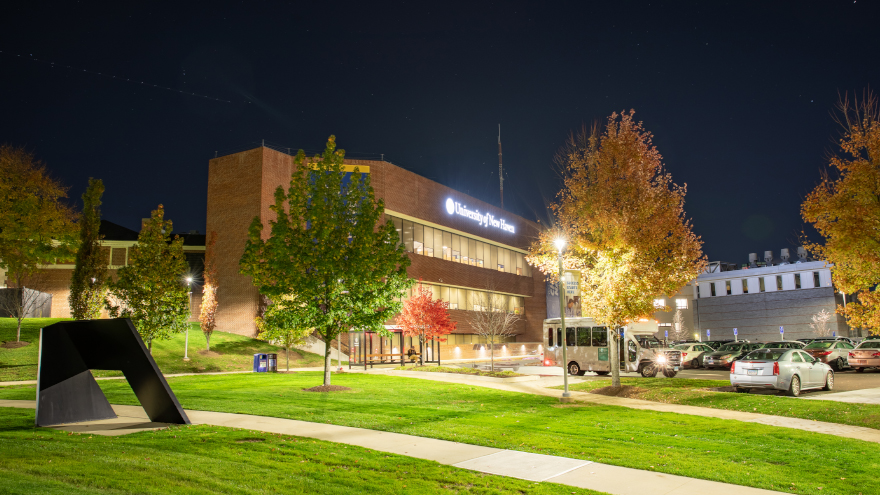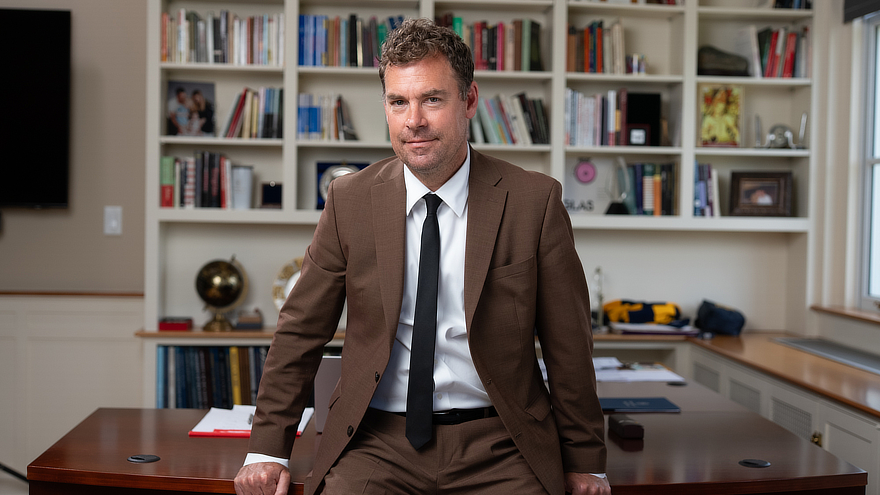Intro paragraph here.
May 9, 2019
By Jackie Hennessey, contributing writer
As schools nationwide "have become more dependent on educational apps," Rachael Malizia, Yari Perez, Amaya Collins, and Ingrid Abanto turned their attention toward the dangers inherent in having information on students around the country vulnerable to hackers.
They’d spent the first half of the "Cyber World" section of the University’s Common Course – a required course for all first-year students – developing research and critical thinking skills, on information and digital literacy, identifying reliable sources, and writing strong reflections. They took part in a lecture series taught by eight instructors from four of the University’s colleges as well as discussions and problem-solving exercises.
During the second half of the course they researched a cyber world problem using a variety of sources, found a solution, created a poster, and shared their findings at the Common Course Expo. One group examined the need for password managers and the little understanding the public has about them, and another explored the vulnerabilities of self-driving cars.
This was the first time the "Cyber World" was one of the Common Course themes – other themes have included Happiness, Identity, Justice, and Politics. The development of the Cyber World theme was supported by a grant from the Davis Educational Foundation. Dean Harichandran and Frank Breitinger, Ph.D., assistant professor of computer science, spearheaded the concept and grant proposal and assembled a team that included seven other faculty from all colleges at the University to develop and teach the course in fall 2018.
"Project-based learning can only be effective if students have bought into the topic."Kristen Przyborski, Ph.D.
Dr. Breitinger says initial review of data collected on the course indicates it was very well received by students and faculty. Of all first-year students who took the Common Course, 160 students from across the University chose the Cyber World option.
"Cybersecurity impacts everyone and everyone should know what a good password is, what a reliable website is, what spam is, and what happens if submit your DNA online to websites," Dr. Breitinger says.
Kristen Przyborski, Ph.D., Common Course director and lecturer in biology and environmental science, says the topic was inherently interesting to students "because they spend so much time online and on apps." "Project-based learning can only be effective if students have bought into the topic," she says and called this a natural fit.
Malizia, a forensic science major with a longtime interest in computer programming, says she found much of what she learned about cybersecurity and cybercrime eye opening. She says she will use skills she developed in the common course throughout her time at the University, particularly the need to persist when searching for and finding reliable sources. She also liked collaborating with a team of students of different academic areas "who had very high standards and high expectations about their work."


